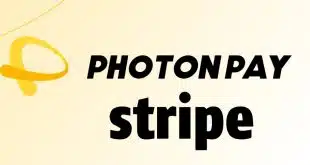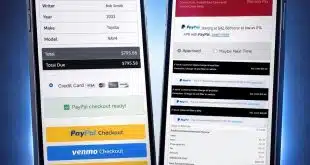MasterCard Inc. on Thursday rolled out a revamped Masterpass digital wallet it clearly hopes will out-compete offerings from technology titans like Alphabet Inc., Apple Inc., and Samsung Electronics Co. Ltd., all of which have come into the market since Masterpass’s debut in February 2013.
With this new version, MasterCard is stressing in-store transactions, a capability the original wallet had at its launch, though it has drawn most of its usage from e-commerce, both online and in-app. Masterpass works at contactless terminals using near-field communication technology, opening the wallet to 5 million merchant locations in 77 countries, according to Mastercard, which says the first in-store transactions in the United States on the new platform will begin flowing later this month..
For now, the NFC capability is restricted to Android devices. MasterCard has no plans to add Apple phones, according to a company spokesperson. “Both Visa [Inc.] and MasterCard have provided banks a mobile-payment solution for Android, but Apple has locked banks out of iOS by blocking access to the NFC element,” notes Tim Sloane, vice president of payment innovation at Mercator Advisory Group Inc., a Maynard, Mass.-based payments consultancy.
In another echo of the original Masterpass at its launch, the new platform allows financial institutions to develop and market Masterpass wallets using their own brands. So far, some 16 institutions have signed on, including 13 banks and three credit unions, according to MasterCard’s Thursday announcement. Major issuers include Bank of America, Capital One, Citigroup, Fifth Third Bank, and SunTrust Bank.
Over the course of a global rollout the network expects to run into next year, more than 80 million accounts will be “automatically enabled” for Masterpass by issuers, MasterCard says.
Along with the overhauled wallet platform, MasterCard also unveiled a new branding strategy that includes a redesigned logo and a lower-case “c.” Likewise, Masterpass, which had been spelled with a capital “P,” now adopts the lower-case version.
Some observers question whether the new Masterpass will enjoy much more success with NFC payments than have major players like Apple Pay, which launched nearly two years ago, and Alphabet’s Android Pay, in-market since September. A big part of the problem has been convincing merchants to install contactless devices, or to turn on the contactless capability that comes with new EMV gear. As a result, contactless “remains a struggle to get merchant buy-in,” says Steve Mott, principal at payments consultancy BetterBuyDesign, Stamford, Conn.
At the same time, Masterpass enjoys an advantage with its multichannel capability. Apple Pay comes closest, but its online function is limited to Apple’s Safari browser.
The new platform, with its white-label feature, “is mainly a way for issuers to get into the game directly, using this technology,” says Mott. That could allow more banks to enter the mobile-payments arena, a field where giants like JPMorgan Chase and Capital One have dominated the headlines (Chase’s Chase Pay service is due to roll out later this year). But results so far for banks have been “tepid,” Mott says.
On the other hand, companies like Mozido and SimplyTapp, which develop mobile wallets for financial institutions, could benefit from the new Masterpass push by helping banks do the back-end integration work necessary for the wallet to work in-app, online, and in-store, Mott points out.
Ultimately, the timing of the new Masterpass might be fortunate, in that it‘s coming in the midst of a nationwide rollout of EMV. The move to chip cards is placing contactless devices in stores and at the same time helping to create demand for contactless with a widespread perception of slow chip transactions.
“Ironically, the way the brands bungled the deployment of EMV might have more juicein moving the marketplace to mobile payments than any tangible advances in the checkout technology itself,” says Mott, a long-time critic of the EMV migration. “That’s quite a sobering realization.”




